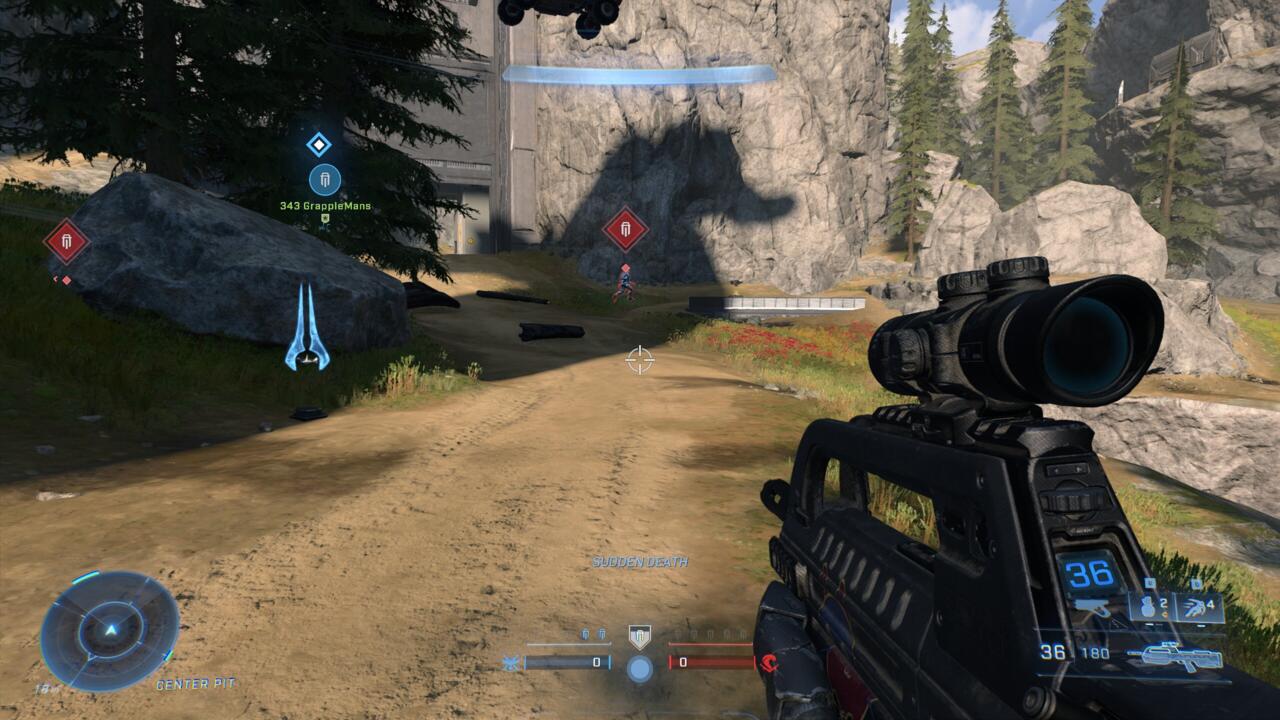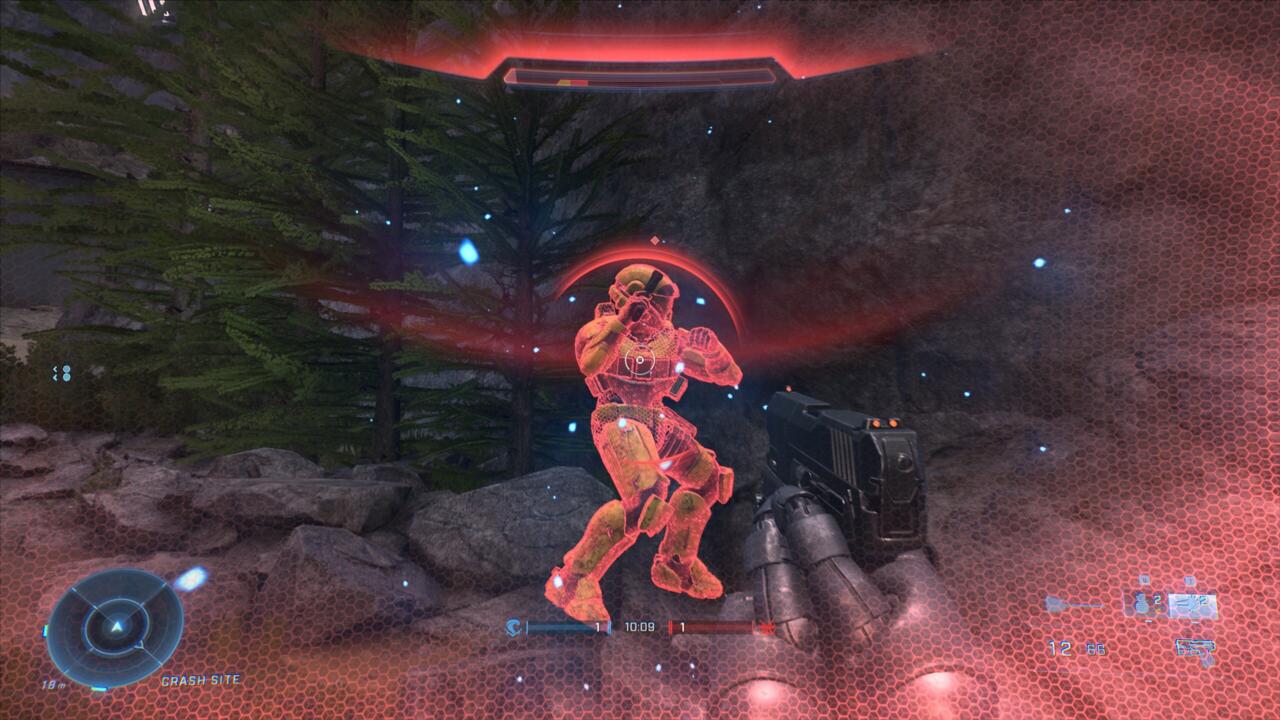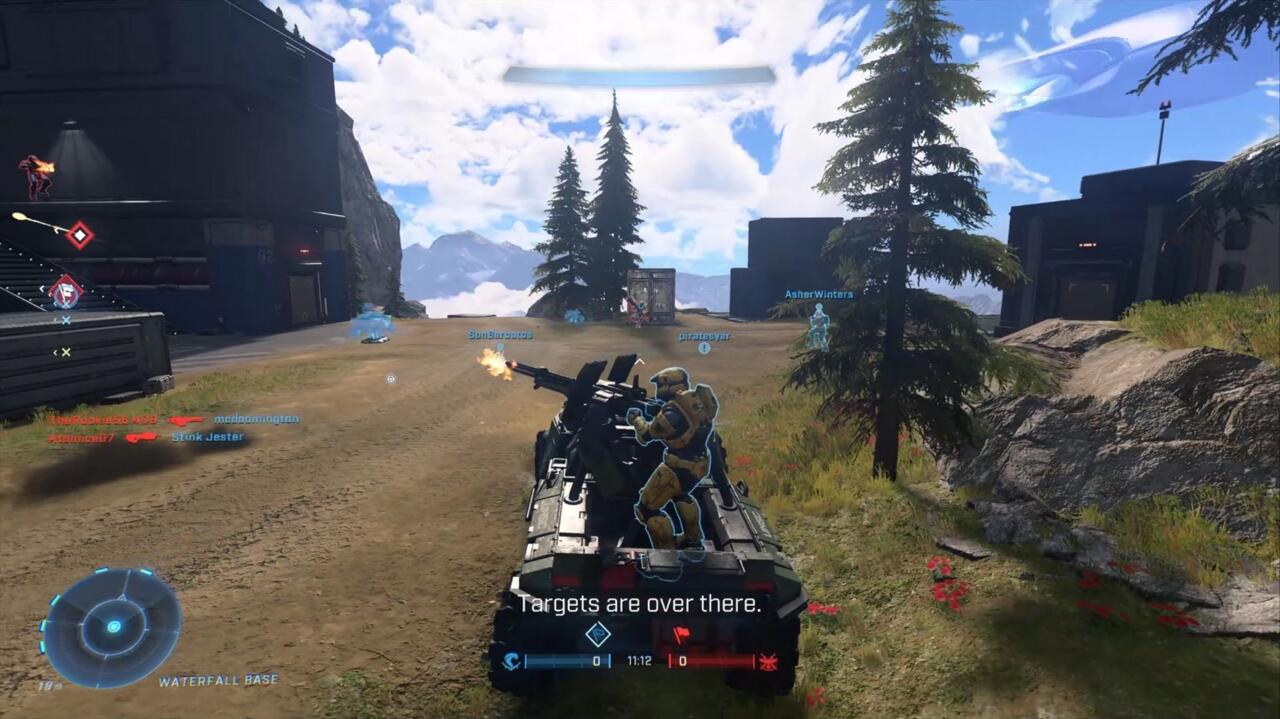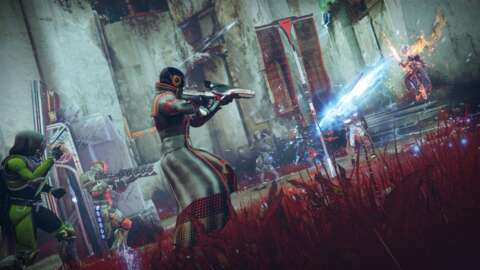Here’s how to transfer your Destiny 2 skills to Halo while you’re waiting for the 30th Anniversary to drop.
By
Phil Hornshaw
on
The launch of Halo Infinite’s multiplayer beta recently has been a big reminder for some of us ancient, lapsed Halo fans of just how great that franchise’s competitive gameplay can be. The remarkable thing about Halo Infinite is how much a lot of it feels like an improved return to the original Halo. Of course, the original Halo was a Bungie joint, and after completing a big batch of Halo games, Bungie went on to work on Destiny. The Halo baton was passed to 343 Industries, but this latest entry in the franchise feels more akin to Bungie’s early work than the last few games in the series.
Since Halo Infinite and its free-to-play multiplayer mode are pretty popular right now, and since we’re still a few days out from the big content drop that is the 30th Anniversary celebration for Destiny 2, you might be thinking about jumping from the Crucible to Halo for a bit. That’s certainly what I’ve been doing. The good news is that if you’re looking to try out Halo after spending your time in the Crucible, you’re going to find the two games are very similar, given the DNA they share. There are absolutely some aspects of Halo that will feel out of step for Destiny players, but for the most part, the games have a lot in common.
The primary difference between the two is speed and versatility of movement in Destiny 2. Jumping and sliding are a much bigger part of the experience, and while those elements are present in Halo as well, you’ll generally find your character feels slower and has a tougher time escaping danger without equipment like the Grappleshot or Thrusters. Your Destiny movement ideas are going to translate well, but you still have to be very careful about putting yourself in harm’s way.
The other thing about Halo is that you shouldn’t necessarily expect to duel your way out of situations in the same ways you might in the Crucible. Time-to-kill in Halo can feel very long because of the way the game’s shield system works. Simply put, headshots matter, but only once an enemy’s shield is down (although certain weapons, like the S7 Sniper Rifle, still prioritize headshots for one-hit kills). The good news is that your twitch aiming skills aren’t at such a premium in Halo Infinite. Essentially, the things that help you win in Destiny will help you win here, with the bonus of Halo being a little more forgiving on nailing opponents in the head. That said, it’s going to feel like you’re dumping a ton of ammo on enemies at times.
Here are a few tips that should help you transition out of the Crucible and into Halo Infinite’s multiplayer matches. Feel free to leave your own tips in the comments, because while I play both a lot of Destiny 2 and a lot of Halo, I’m only occasionally good at either one.
One last thing–catch me, Jean-Luc Seipke, and David Ahmadi on GameSpot’s Extra Life stream today! We’re going to spend a couple hours getting lambasted in the Crucible on behalf of charity. Please come donate. Please don’t come make fun of us.
Okay, tips time.
Learn the guns

Where Destiny 2’s guns tend to fall into a series of archetypes and you’ll always have a decent idea of what to expect from them, Halo Infinite has a lot of guns that are a bit more gimmicky. That is to say, they’re esoteric, particular weapons that do particular things and play a particular way. No gun really feels like any other gun in Halo, so picking up a weapon you’re unfamiliar with on the battlefield is often a good way to get dropped in your next duel. It’s essentially a game full of Destiny 2 Exotic weapons, so you should absolutely spend some time in the Academy section of the main menu, where you can complete Weapon Drills that let you get a handle on each of the guns. Some guns are better for certain jobs than others, including taking on vehicles, and you’ll need to scour each map to find the right tool for the job.
Throw more grenades!
When Bungie jumped from the Halo series to making Destiny, one of the biggest changes was the way it handled grenades. There’s no recharge timer for grenades in Halo–they’re objects you add to your inventory, same as weapons or ammo. That means you can find a ton of grenades in any given map to restock with, and it also means that you need to throw more grenades. As Shaxx would say, you should be throwing grenades as you read this. Grenades are a great way to open or close any given firefight, and you can have four at a time, so you can rapidly chuck them into a control zone or choke point for maximum damage. There are way more grenades in Halo and you’ll always respawn with two, so go wild with them.
Melee is essential, but get close

Powered melees aren’t a thing in Halo Infinite, but whacking someone with your gun is as essential in Halo as it is in the Crucible. The thing is, you’re going to find that while you still get a bit of a melee lunge in Halo, its range is drastically shorter than in Destiny 2. That said, a melee will kill an opponent with broken shields, and will instantly murder anyone if you attack them from behind, so you’re going to want to use melees. In fact, you should combine grenades, gunfire, and melees in your duels–the triangle strategy of Halo, as it’s often called. These are very similar tactics to what you’ll use in Destiny, with the caveat that in Halo, shields are tougher to knock out, and enemies with broken shields are very vulnerable. Two melees is enough to win almost any given fight, so throw some ‘bows.
Stick to cover
This is a Destiny 2 strategy that you should be employing anyway, but Halo Infinite’s design means that its maps tend to be smaller (unless you’re playing Big Team Battle), with less cover. So if you’re moving in the open, you’ll often find that you’re in someone’s sights, and that they can put damage on you even from a distance–and likely take you down. Destiny 2 maps tend to provide more cover and to have more total area, even when they’re on the smaller side, where the size of Halo maps will often mean that players are coming at you from the sides or behind very often. Thus, you’re going to want to pick your routes through maps; don’t move in the open, stay near cover, and try to build as much spatial awareness as you can to avoid getting ambushed. It’s easy to give away kills in Halo Infinite, since you move slower in Halo than in Destiny 2, and it can be tougher to escape an enemy to your side or at your back.
Stay together to lower your Time To Kill
The time it takes to knock out an enemy in Halo Infinite feels much longer than in Destiny 2. You’ll need to sustain fire and aim for longer, on the whole, when fighting opponents in Halo, so keep this in mind when you pick your battles. So like in Destiny 2, it’s a very good idea to stick close to your teammates most of the time, since combined fire makes opponents much easier to bring down. You’ll notice that you’re way more effective as a fighter when you’ve got two guns bearing down on an enemy than one, but in Halo, the longer time-to-kill can make going it alone even more dangerous.
Vehicles can change the game

Destiny 2 doesn’t have matches that include vehicles anymore, but driving Warthogs, Mongooses, Banshees, and Ghosts is a huge part of winning in Halo Infinite. Those vehicles aren’t invincible, of course–in fact, there are maybe more ways to take them down than in this game than in past entries in the series–but they can still easily turn the tide of a match in a drastic way. You’ll want to spend some time getting used to each of the vehicles so you can use them to help your teammates, and to learn how best to deal with them with weapons such as the Hydra, rocket launcher, Disruptor, and Shock Rifle. Being able to use a vehicle to rack up a ton of kills, or quickly destroy one to keep the opposing team from going on a run, are essential to winning in Halo Infinite.
Got a news tip or want to contact us directly? Email [email protected]

